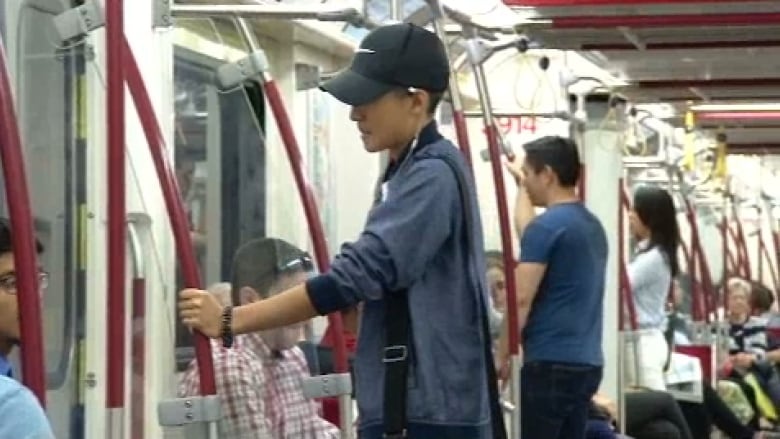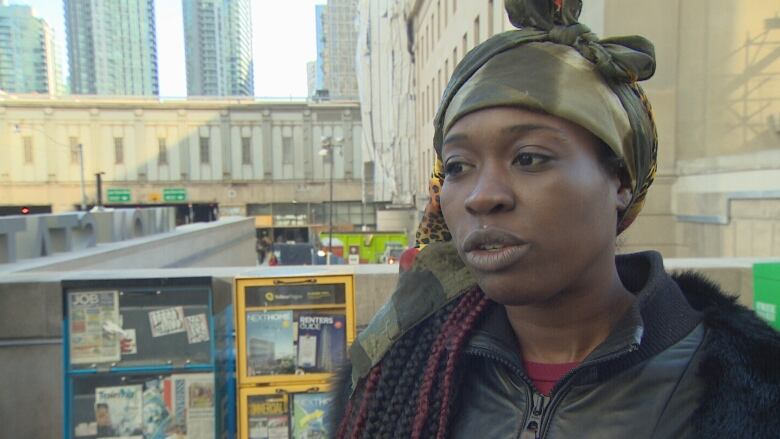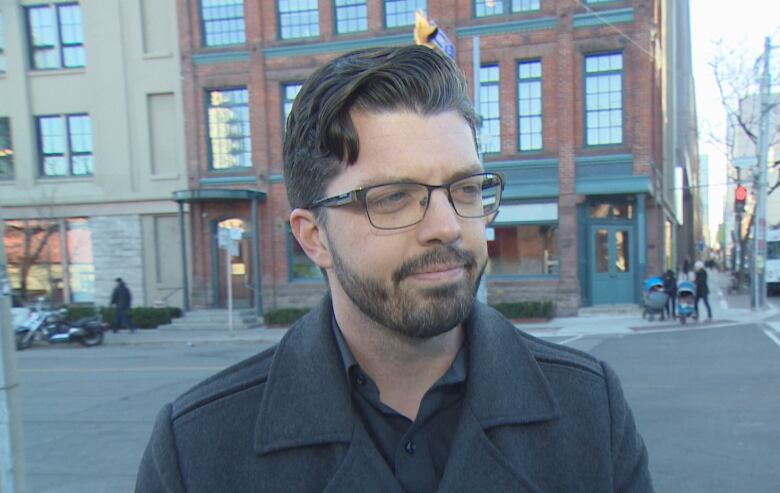Commuters, like new StatsCan data, say public transit best way to get to work
Average commute time in Toronto longest in country at 34 minutes, new stats suggest

The average commute time to work in Toronto is the longest in the country at 34 minutes, according to new data. But ask a handful of commuters outside of Union Station, and they will all tell you what the statistics also make clear: that more Canadians are getting out of their cars and onto public transit.
According to new figures from Statistics Canada, the average commute has increased to 26.2 minutes, up from 25.4 minutes in 2011. People are also travelling farther, with the median commute at 7.7 kilometres, up from seven kilometres in 1996.
And the number of Canadians who use public transit is now at 12.4 per cent, up from 10.1 per cent in 1996. Much of that is in Toronto, Montreal and Vancouver, according to StatsCan.
Akila O'Connor, a Ryerson University student who commutes to Toronto from deep in Mississauga, near Oakville, says her commute includes taking a bus to the local GO station, and then an hour train ride to Union. From there, she takes the subway to Dundas station. Total commuting time: Two hours.
A new option that includes express buses brings the time down to onehour and 15 minutes. When she gets a ride from her boyfriend, it can be 45 minutes.

But whichever option she chooses, O'Connor's commute time is still above the Toronto average.
"It would be awesome if it was better," she told CBC Toronto. "It's just a lot of traffic. It's a lot of volume."
She uses her Presto card to transfer between the transit agencies, which helps make her commute a little easier, she noted.
But while more express buses would help, she said they'd still be stuck in traffic during rush hour times. So more train service tops her wish list, though she figures that by the time any new lines are built, the GTA population growth will have outpaced the new capacity.
"Toronto keeps growing so by the time it's built it will be more people," O'Connor said. "So how do you keep up with that?"
'I wish we could wave a magic wand'
Kevin Montgomery calls his more than hour-long commute from Brampton, Ont. a "multi-modal one."
The trip begins with a bike ride to the GO station. From there, Montgomery takes the train to Union Station, and then takes a bike-share to Adelaide Street and Princess Street.
All told, his commute can take more than hour, which he spends catching up on emails, social media, and having a nap.
Montgomery's trip wasn't always so varied. He used to drive into downtown from Brampton, but one day when he was stuck in traffic,he saw a GO train go by.

"I remember thinking to myself, 'That train is going to get home before me.'" His advice to drivers: "Give it a try."
Asked about the new StatsCan data on Wednesday, Mayor John Tory said building more transit takes time, but in the interim he is committed to taking other steps to improve commute times, including new technologies, traffic wardens and old-fashioned police work.
"I wish we could wave a magic wand and have some sort of some new transit lines in two weeks or two months or even two years," he told reporters. "It takes time, these are big projects, and require careful planning and a lot of construction work."
Meanwhile, Cinzia Morro had a positive outlook on her daily commute to Toronto from Vaughan. From door to door it takes her about an hour, she said.
She's never tried to drive, given how congested the roads are. And she tries to make the most of her time on the GO.
"You can read and talk with your friends," she said with a smile. "There's lots to do."
With files from Eric Grenier












_(720p).jpg)


 OFFICIAL HD MUSIC VIDEO.jpg)
.jpg)



























































































